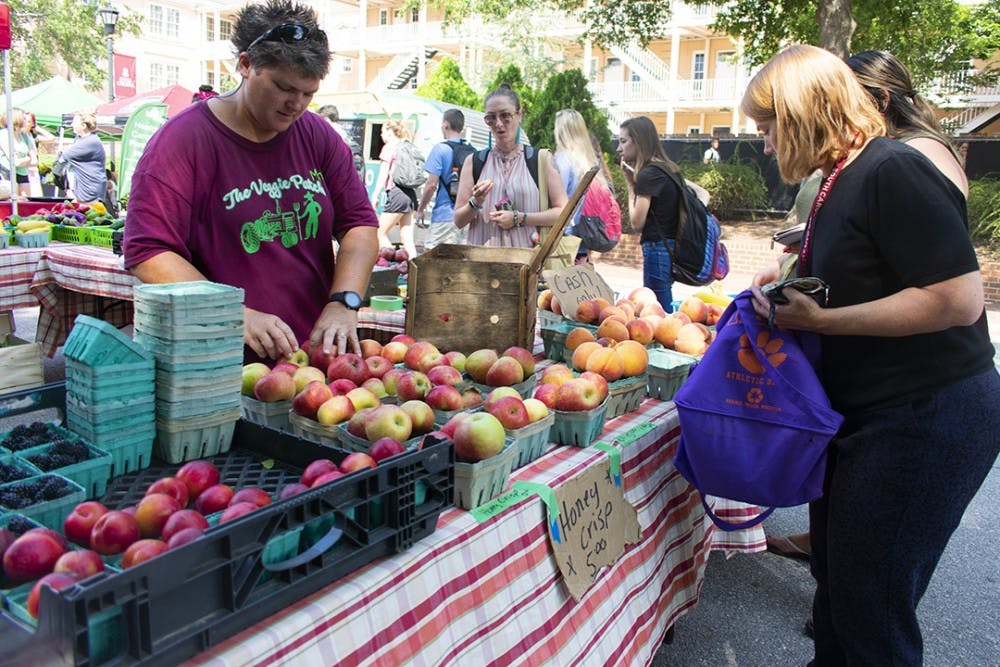As students readjust to life on campus, Healthy Carolina, a Student Health Services program at USC, is working to encourage students to live a healthy lifestyle.
The program works to make it easier for students to make healthy choices, including encouraging students to walk to class, maintain a tobacco-free campus, quit tobacco or drug use and engage in a healthy food diet.
Healthy Carolina largely focuses on directing students to other areas of the university for help. For example, Healthy Carolina helps bring students to Student Health Services for health needs and the Student Success Center for educational guidance.
They are perhaps best known for their weekly farmers markets.
Since 2008, Healthy Carolina has hosted the market each week for students on Greene Street in front of Russell House. The farmers markets are held on Tuesdays from 10 a.m. to 2 p.m., and offer students and staff fresh, locally-grown produce. Each farmers market has its own wellness theme, which Jackie Knight Wilt, assistant director of Healthy Carolina initiatives, said exposes students and staff to many other healthy lifestyle choices.
“By creating an environment that’s going to be most conducive for them to make healthy choices, we’re setting them up for success now and within the future," said Knight Wilt.
Mental health is one of Healthy Carolina's priorities, and the program works with USC's Student Health Services to ensure that students have access to counseling, a suicide prevention lifeline, stress management and meditation, among other services.
April Scott, associate director of mental health initiatives, said a change in behavior is a cause for concern. If a student is withdrawing from social events, missing work, skipping class or abstaining from things they once enjoyed, a student may need outside help. Even a lack of hygiene could potentially be a sign of distress.
The assumed goal of college is to acquire a degree and "mental health is going to play a vital role in getting to that place," said Scott.
The after-hours crisis hotline is available for students who are in any level of distress.
“The dimensions of wellness, if you think of it like wheels on a car, you can’t drive a car with three wheels,” said Scott.
Healthy Carolina graduate assistant Max Habicht was drawn to Healthy Carolina because he wanted to practice public health in real time. Before joining, he was unaware of the multiple services available for mental, physical and sexual health as an undergraduate.
"I try to just give [students] the information that this stuff is out there and it's really easy to use and access," Habicht said.
Tori Czaruk is a peer leader for Changing Carolina, a group that helps organize events and conduct presentations discussing healthy lifestyles in University 101 classes. Since she is from out-of-state, she can relate well to out-of-town students.
“Homesickness and a lot of that kind of played a role in my first semester of college so I think I was able to speak on that with personal experience to kind of help freshmen in regards to stress management,” Czaruk said.
On the whole, Knight Wilt hopes that Healthy Carolina encourages all students to stay healthy and inspire good habits in the people around them.
“Everyone in the Carolina community ... can play some kind of role and can do something to uplift this vision,” Knight Wilt said.

